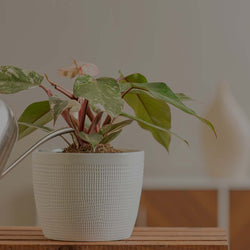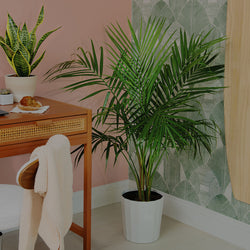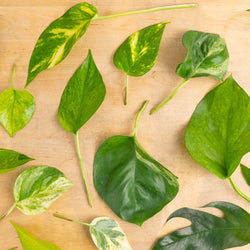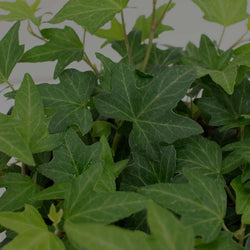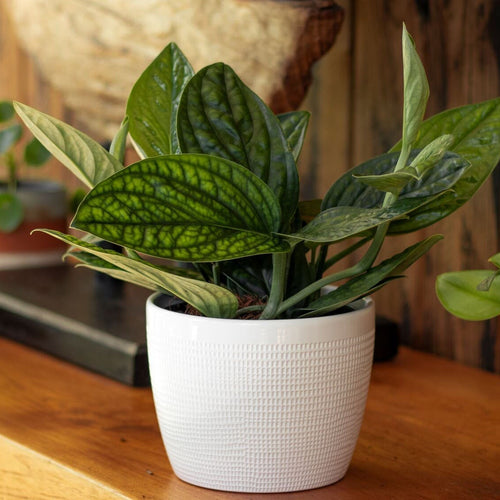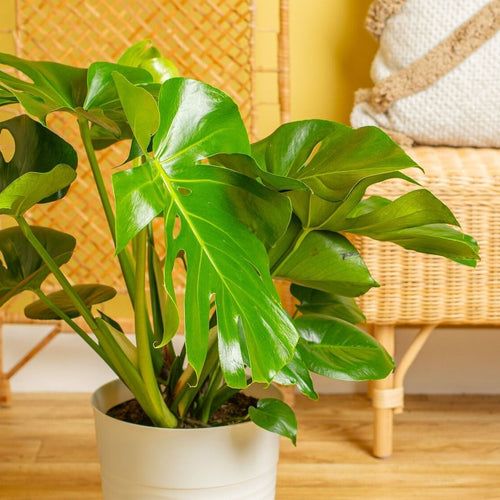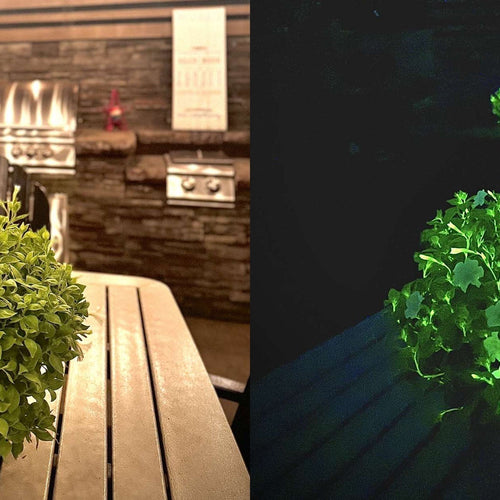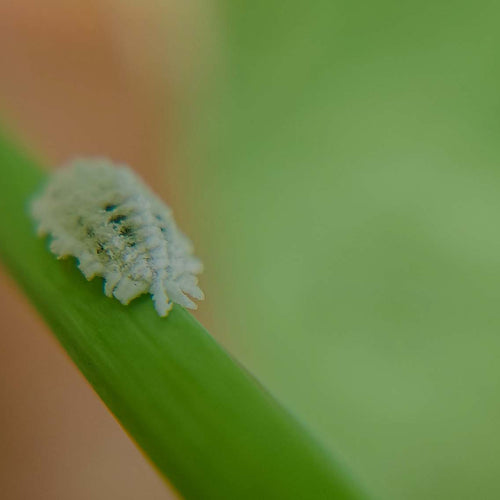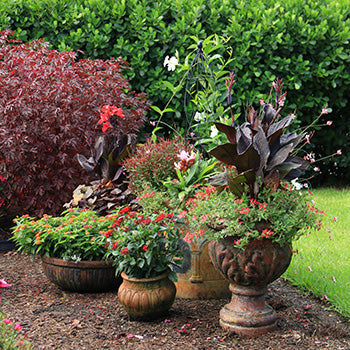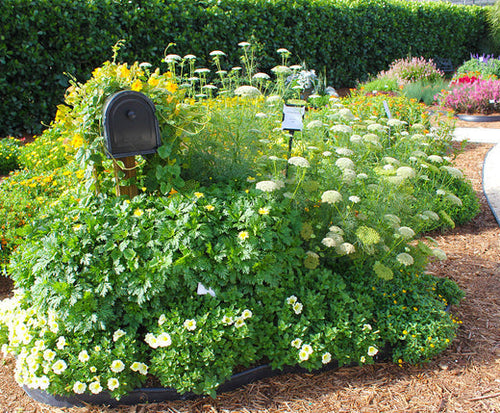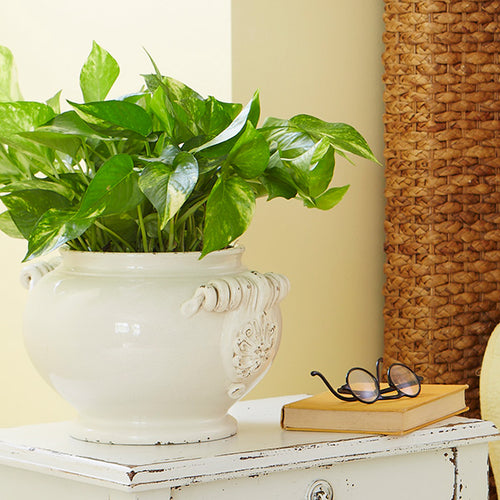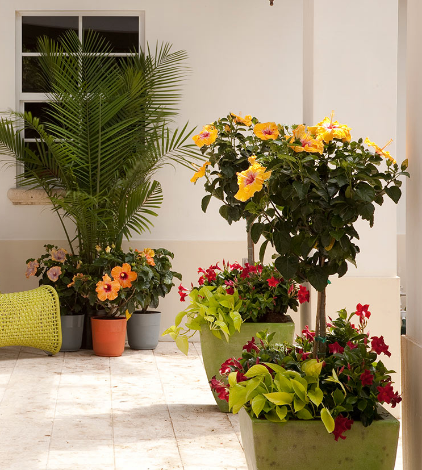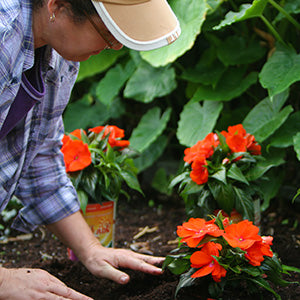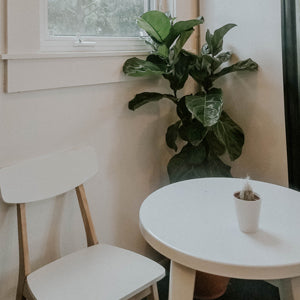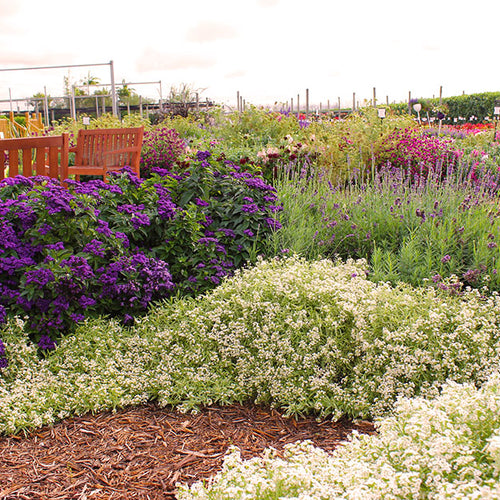Though it’s often overlooked when gardening, especially by new gardeners, spreading a layer of mulch over your planting beds is one of the best thing you can do to make your garden easier to care for and keep your plants healthier.

Benefits of Mulch
While there are many benefits of using mulch, many people’s favorite is that mulch does an amazingly good job at
reducing weed growth. Because many weed seeds need to be exposed to light in order to sprout, a dense layer of mulch
stops light from reaching the seeds so they never get a chance to sprout. And, for weeds that sprout on top of the soil,
the loose nature of many types of mulch makes the weeds easier to remove.
Another important benefit of
mulch is that the barrier it creates between the air and the soil helps reduce moisture loss to evaporation. This means
you may have to water your garden less frequently, which saves you time and money. This barrier the mulch creates also
helps keep the soil cooler, particularly in hot summers, which can help keep many perennials happy and
thriving.
If you use an organic-based mulch, such as shredded wood, your mulch will slowly break down.
While this sounds like a bad thing, it’s actually a very good thing; as it decomposes, the mulch returns nutrients and
organic matter to your soil, helping your plants to thrive.
Beyond plant health, a nice thick layer of
mulch also helps your garden look better. The darker the mulch, the more it highlights the beauty of your
plants.
Types of Mulch
Just about any material you can use to cover the soil can be an effective mulch. Locally sourced options, particularly byproducts from local industries, can often be found for very low cost -- or even at no cost at all.
Compost
One of my favorite types of mulch, compost is often available for free from your local municipality or if you make it yourself from kitchen scraps and yard waste. Compost has a rich, dark brown color and really sets off your plants. It decomposes quickly, so it will need to be reapplied every year. But if you make your own compost, you have it around anyway!
Shredded Wood
Shredded wood bark is commonly available at garden centers, home improvement centers, and mass merchandisers. There are a variety of types you can find, most typically cypress, cedar, and eucalyptus because they are the most weather resistant and the slowest to decompose.
Cocoa Hulls
Like compost, cocoa hulls offer a dark, rich color and fine texture that looks beautiful in landscapes. Cocoa hulls, like shredded wood, are relatively slow to break down. And if you love chocolate, you’ll love their delicious cocoa scent. Note: Like chocolate, cocoa hulls are poisonous to dogs if they eat this mulch.
Pine Needles
Pine needles offer a light airy texture that looks beautiful in all settings, but particularly lovely in woodland gardens. Pine needles are relatively slow to decompose and stay in place well after a heavy rain. Over time, they can slowly make soil a little more acidic. But this effect is not strongly pronounced, so don’t be afraid to use pine needles if you already have acidic soil.
Gravel and River Rock
Stones in the garden offer a classic, Mediterranean look and are particularly well suited to plants that like sharp drainage, such as succulents. Because gravel and river rock aren’t a form of organic matter, they don’t decompose and improve your soil over time. They can also get messy when they mix with the soil in your garden and can be difficult to remove or work around (such as when you need to divide perennials).
Shredded Rubber
In our opinion, rubber mulches are ideal for playgrounds, but not for gardens. Like gravel and river rock, rubber mulches won’t decompose, so they don’t improve your soil. And they can be difficult or impossible to remove once they become mixed with your soil. And, some types of rubber mulch continue to smell like old tires for some time after being used, particularly in hot weather.
